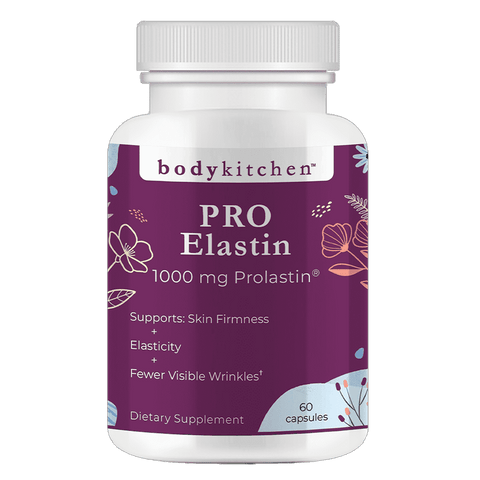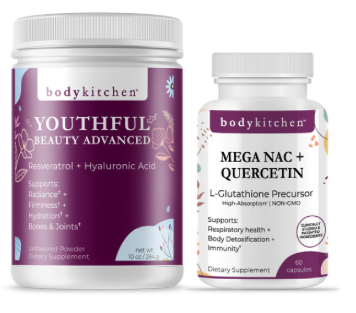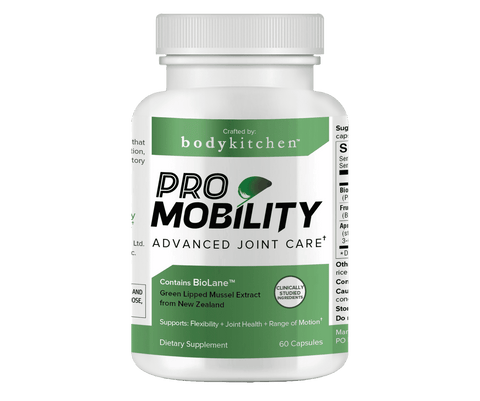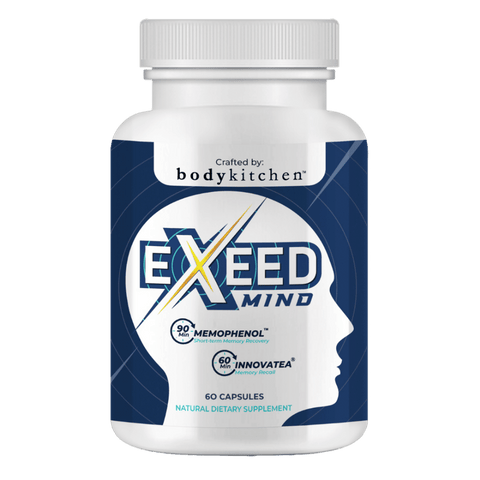Anti-Aging Lifestyle and Advances in Anti-Aging Technology
Aging is a natural part of life that no one can escape. However, recent anti-aging breakthroughs suggest that it may be possible to address signs of aging and support better health as we age. Read on to learn more about anti-aging technology and science and how you can lead a healthy anti-aging lifestyle.
Can We Reverse Aging?
Although there have been significant advancements in anti-aging technology, it's not possible to completely reverse aging. No skin care product or pill can make fine lines and wrinkles vanish or restore joint health to that of a young adult. However, steps can be taken to offset the effects of aging and potentially slow down the aging process.
Turning Back the Biological Clock
Making positive lifestyle changes is the key to turning back the biological clock as much as possible. Because significant changes can be complex, choosing one area to focus on is an intelligent approach. Set a goal, and then monitor your progress. Once you become accustomed to the lifestyle change, add another, set new goals, and continue your journey. You can make the following positive changes to support healthy aging.
Eat a Well-Balanced Diet
Supplying your body with the right vitamins and minerals is essential as you age. A balanced diet for an anti-aging lifestyle includes:
- Whole grains
- Fruits and vegetables
- Lean proteins like fish, poultry, and beans
- Low-fat or fat-free dairy products
- Healthy fats in moderation
Cutting back on heavily processed foods and limiting your intake of added sugars can also positively impact your health and well-being.
Stay Active
Exercise can lower your risk of heart disease, heart attack, stroke, diabetes, high blood pressure, obesity, and other health conditions. The U.S. Centers for Disease Control and Prevention (CDC) recommends that older adults get 150 minutes of moderate-intensity exercise like walking, swimming, dancing, or cycling every week. In addition, the CDC advises older adults to do strength-training workouts twice weekly to support strong bones and muscles.
Reduce Stress
Stress can impact more than just your emotional and mental health. Ongoing anxiety can lead to changes in hormone levels in your body and trigger symptoms like diarrhea, indigestion, nausea, headaches, and skin rashes. Stress management can benefit your body and mind as you age. Some ways to fight stress include:
- Healthy diet and exercise regimen
- Meditation and mindfulness
- Taking breaks from work
- Limiting exposure to social media and upsetting news stories
- Talking to friends and family members about your feelings
- Seeing a therapist
- Participating in hobbies you enjoy
- Deep breathing
Abandon Unhealthy Habits
To support healthy aging, reassess harmful habits, such as:
- Smoking: Smoking can damage collagen fibers and contribute to developing fine lines and wrinkles while raising the risk of cancer and heart disease.
- Drinking alcohol in excess: The CDC recommends that women consume no more than one alcoholic beverage daily and that men limit themselves to no more than two daily alcoholic beverages to support good health.
- Self-diagnosing and treating medical concerns: See your doctor regularly for checkups and notify your health care provider when you experience new symptoms that could indicate an illness or disease.
Get Enough Rest
Older adults generally need 7 to 9 hours of sleep nightly. A lack of sleep can impair immune system function and increase the risk of type 2 diabetes, heart disease, obesity, and depression. Going to bed and getting up at the same time every day can help you rest more easily. Also, try to limit your exposure to blue light from televisions, computers, and mobile devices before bed.
Try Beauty Supplements
Vitamins and supplements can play a role in supporting healthy aging. Peptide-fortified collagen has been shown to promote healthy hair, skin, and nails. Collagen is a structural protein that supports skin tissue, giving it elasticity and resiliency. Collagen loss with age is normal due to a natural slowdown of collagen production.
Taking a collagen supplement can supply your body with amino acids that can be used to increase collagen production and potentially increase skin firmness. The best collagen for anti-aging is one with many dipeptides, the building blocks of proteins.
In addition, supplements that combine collagen with resveratrol may also be a wise choice. Resveratrol is an antioxidant found in grapes and some other plants. It helps break down reactive free radicals that damage collagen fibers and accelerate aging. The benefits of resveratrol go beyond anti-aging skin support. The antioxidant has also been shown to support heart health, improve blood sugar regulation and reduce the risk of Alzheimer's disease and some forms of cancer.
















